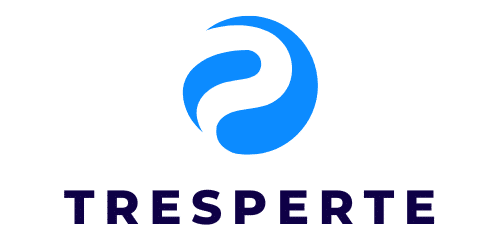What Are the Ethical Implications of Genetic Testing in Sports?

From the starting blocks of a 100-meter race to the pitching mound of a baseball game, the world of sports is always interlocked with science. But how about the world of genetics? Yes, you heard it right. Genetic testing, a fast-evolving field of biomedical science, has started to make its mark on sports. This article will dive into the ethical implications of such practices, shedding light on the issues related to discrimination, health, employment, privacy, insurance and more.
The Emergence of Genetic Testing in Sports
Let’s start at the beginning. What is genetic testing in sports? Simply put, these are tests that analyse an athlete’s gene makeup to predict their potential for athletic performance. These tests can provide important data on an athlete’s endurance, speed, power, and even susceptibility to injuries.
Have you seen this : How Is Technology Enhancing Safety in Motorsport Racing?
The adoption of genetic testing in sports is, at first glance, a laudable advancement. After all, it can help athletes understand their bodies better, train more effectively, and avoid serious injuries. But, it’s not that simple. Just like any other scientific innovation, genetic testing also comes with its fair share of criticisms and ethical dilemmas.
The Ethical Dilemmas: Discrimination and Employment
How will genetic testing affect the future of sports? Could it lead to discrimination based on genetic traits? There are valid concerns that the use of genetic testing in sports could lead to discrimination against athletes in terms of recruitment and employment. This is because certain genetic traits might be deemed desirable or undesirable by sports clubs or organizations. Those who do not possess such traits might find themselves at a disadvantage when it comes to employment opportunities in certain sports.
In parallel : What Are the Best Practices for Youth Athletic Development in Basketball?
This is one of the main ethical dilemmas of genetic testing in sports. The law is yet to catch up with the rapid advances in genetic testing, leaving an open field for potential misuse. Without proper regulations, there is a risk of the sports industry becoming a playing field where genetic advantages are sought after and prized, and those lacking them are sidelined.
The Privacy Paradox: Athletes’ Rights vs. Performance Data
When your genes become part of your sports CV, where does privacy stand? Genetic testing raises critical questions about the privacy rights of athletes. After all, an individual’s genetic information is arguably the most personal data one can possess.
What happens if this information falls into the wrong hands? There’s a valid concern that unscrupulous parties might use genetic data for nefarious purposes. For example, betting syndicates might use this information to manipulate sports events, or rival teams could use it to gain an unfair advantage. Moreover, the commercialization of genetic data presents another layer of ethical issues. Companies might want to use an athlete’s genetic information for marketing or product development, potentially infringing on the athlete’s privacy rights.
Health and Insurance Quandaries: Are Athletes at Risk?
Let’s ponder over another important question. What happens when genetic testing in sports extends beyond performance indicators and delves into the health of athletes? Genetic testing can reveal an athlete’s risk for certain health conditions. While this information could help prevent serious health issues, it could also lead to stigmatization and discrimination.
At the same time, genetic testing raises questions about insurance coverage for athletes. Insurance companies might use genetic information to deny coverage or increase premiums for athletes deemed at a higher risk for certain health conditions. This issue is yet another ethical quagmire that the industry needs to address.
Navigating the Future: A Need for Ethical Guidelines
Genetic testing in sports isn’t going anywhere. It’s an exciting frontier that could revolutionize the way we understand athletic performance and training. However, the ethical implications are as complex as the human genome itself.
The future will demand a comprehensive framework to regulate the use of genetic testing in sports. This framework should address discrimination, privacy, health, and insurance related concerns. It must ensure that genetic testing benefits athletes and promotes fair play, without infraviously trampling upon their rights.
As we navigate the complexities of this issue, we’ll need to strike a delicate balance. After all, in the quest to understand and improve human performance, we must never lose sight of the fundamental values that make sports what it is – a celebration of human spirit, determination, and equality.
The Genetic Testing Controversy: Fairness and Equality
In elite sports, where the difference between winning and losing can boil down to fractions of a second or inches, genetic testing could potentially tip the balance. However, this brings us to the question of fairness and equality.
Is it fair for an athlete to have an innate advantage due to their genetic makeup? If we accept this, then should we also accept that some athletes will be genetically disadvantaged? It’s a difficult, perhaps impossible, question to answer. To reject the influence of genetics, however, is to ignore the reality of human diversity. The problem arises when these genetic advantages or disadvantages become the sole determinants of an athlete’s career prospects and opportunities.
Moreover, there are also concerns about the accuracy of genetic testing. The science of genetics is still in its relative infancy, and our understanding of how specific genes influence performance is far from complete. Therefore, there’s a risk that athletes could be unjustly discriminated against based on potentially inaccurate or incomplete genetic tests.
Genetic Testing and Individual Identity: An Ethical Conundrum
Looking beyond performance, genetic testing also raises profound questions about the nature of individual identity in sports. Traditionally, sports has been a domain where hard work, practice and dedication are celebrated as the cornerstones of success. If genetic testing reveals that certain athletes are genetically predisposed to excel in certain sports, what does this mean for this time-honored narrative?
Such revelations could potentially undermine the ethos of sports, where qualities like determination, resilience and passion are cherished. It could lead to a world where genetic makeup becomes the primary measure of an athlete’s value or potential, reducing the importance of these other qualities.
Further, there’s a significant risk that such a focus on genetics could lead to the commodification of athletes. If genetic traits associated with athletic performance can be identified and measured, what’s to stop sports organizations from treating athletes as mere collections of desirable genes, rather than as multi-faceted individuals with their own strengths and weaknesses?
Conclusion: A Delicate Balance
As genetic testing continues to permeate the world of sports, the industry must grapple with the profound ethical implications it presents. The potential benefits of genetic testing – such as enhanced performance, personalized training, and injury prevention – are tantalizing. Yet, these must be weighed against the risks of discrimination, privacy violation, stigmatization, and the potential undermining of the ethos of sports.
As we look to the future, the challenge lies in striking the right balance. We must create a regulatory framework that allows us to reap the benefits of genetic testing, without sacrificing the principles of fairness, equality, and respect for individual identity that lie at the heart of sports.
In this era of rapid scientific advancement, it’s crucial that we don’t lose sight of what makes sports truly special: the celebration of human spirit, determination, and resilience. After all, it’s not just about who wins and who loses – it’s about how we play the game.
